Matt Joyce | February 23, 2023
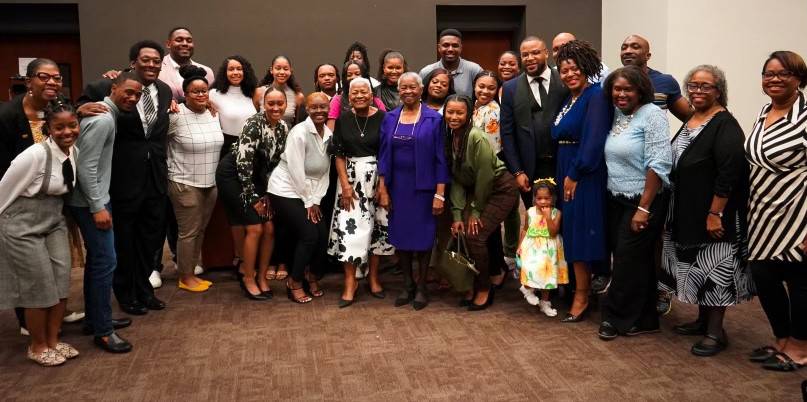
The women who desegregated Texas State 60 years ago reflected this week on their groundbreaking achievements as the university’s first Black students, an experience they described as daunting, thrilling, and rooted in a commitment to education.
The TXST community honored the cohort known as the “First Five” during a Wednesday night event called “Living Legends: Where are they Now,” sponsored by the Coalition of Black Faculty and Staff. Of the First Five women, Helen Jackson Franks and Georgia Hoodye Cheatham attended in person, while Dana Jean Smith and Gloria Odoms Powell participated by video conference. A moment of silence was held for Mabeleen Washington, who died in 2017.
“Sixty years ago, someone who looks like me would not be allowed to stand right here right now,” said Terence Parker, TXST associate dean of students, as he introduced the honored guests. “To the five trailblazers: Thank you. You five women opened the door so that 11,000 African Americans could graduate from here. … You did something significant, big, and impactful so the rest of us can have an opportunity.”
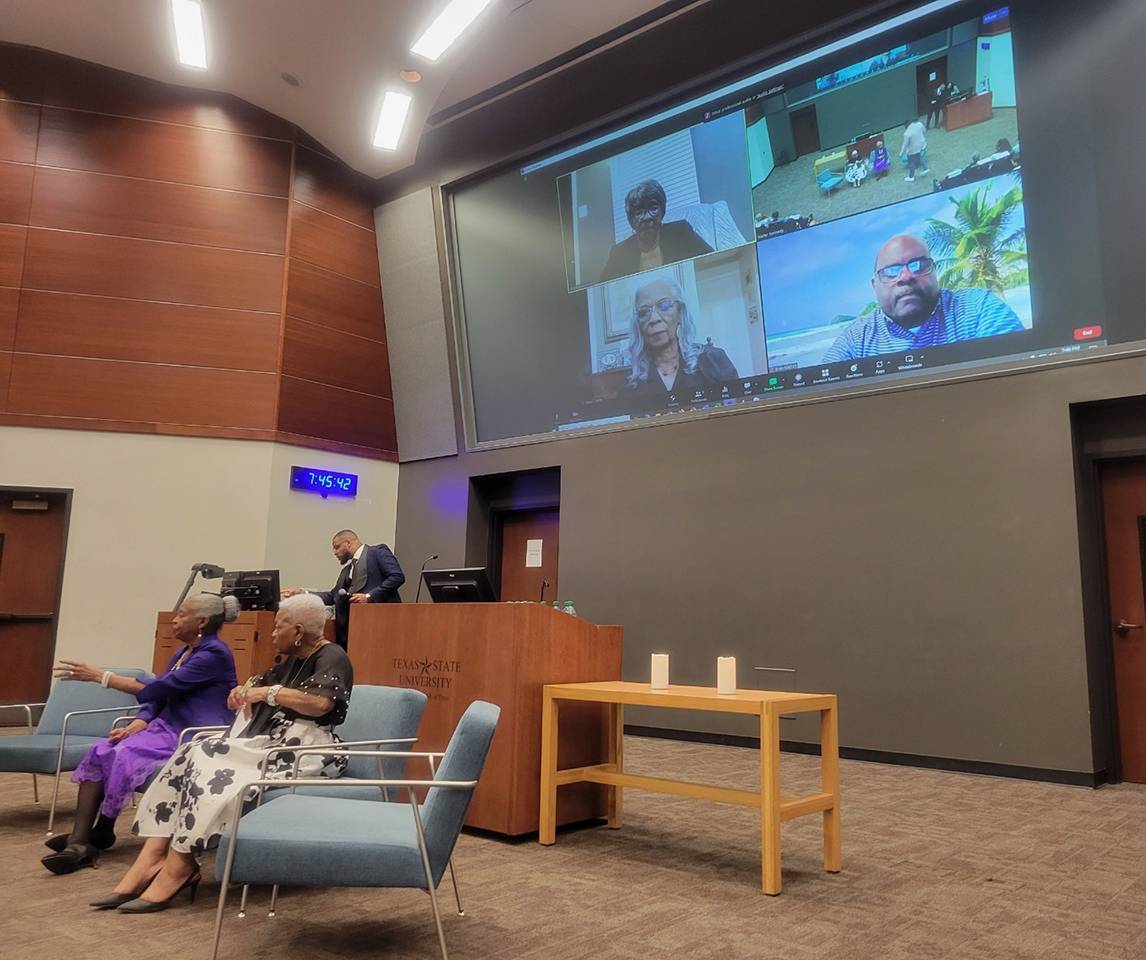
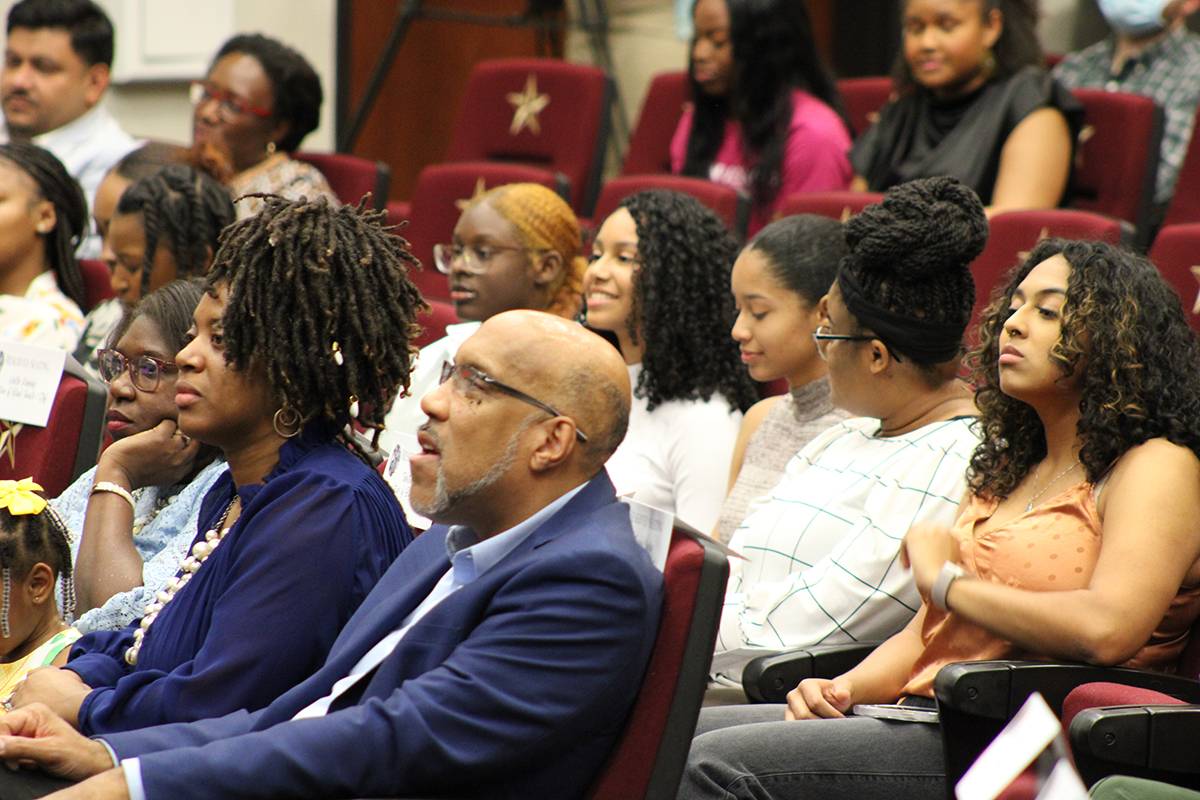
The event, held at the LBJ Student Center Teaching Theater, opened with student performances in dance, spoken word, and song. A Q&A discussion followed, giving the First Five an opportunity to share their memories and reflections.
On Feb. 4, 1963, a federal judge forced Texas State, which was then called Southwest Texas State College, to admit Black students in response to a class-action lawsuit initiated by Smith, who went to Anderson High School in Austin. Hours after the court’s decision, four of the five women enrolled. Jackson Franks joined them the next day.
“There was so much excitement on campus that day when we came in,” recalled Cheatham, who enrolled at age 17. “There were police everywhere, highway patrol, U.S. marshals, TV cameras. We thought we were celebrities—we just smiled and kept on going. Someone asked me, ‘Were you afraid?’ And I said, ‘No.’ I don’t know if it was because I was young and dumb and didn’t have any better sense than to be afraid, but it really was an adventure. … We came in, we enrolled, we got our schedules, and went to class.”
As students lined up to ask questions of the First Five, who are now in their late 70s, the women described a campus environment where they faced racism from some students and faculty but also found allies among others.
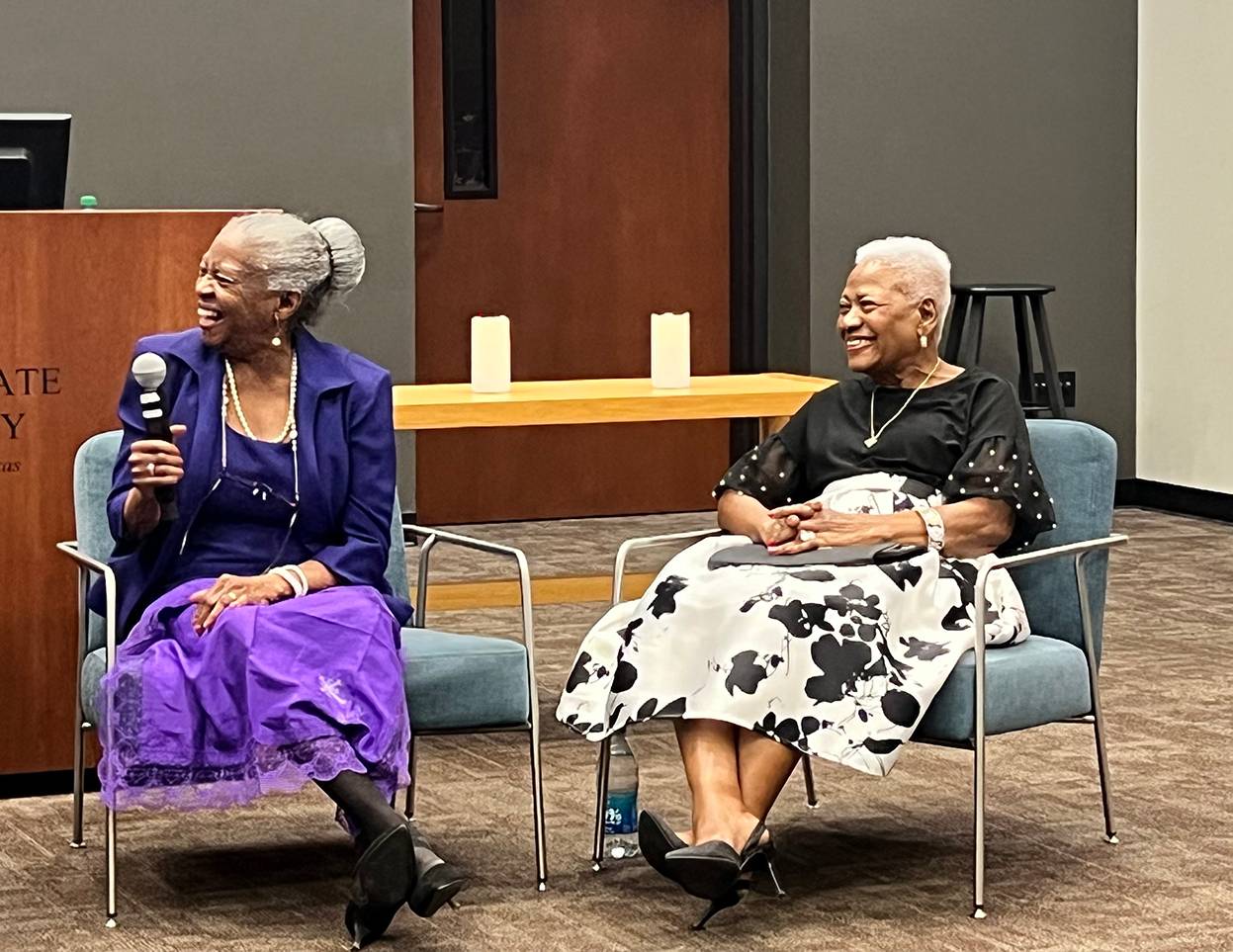
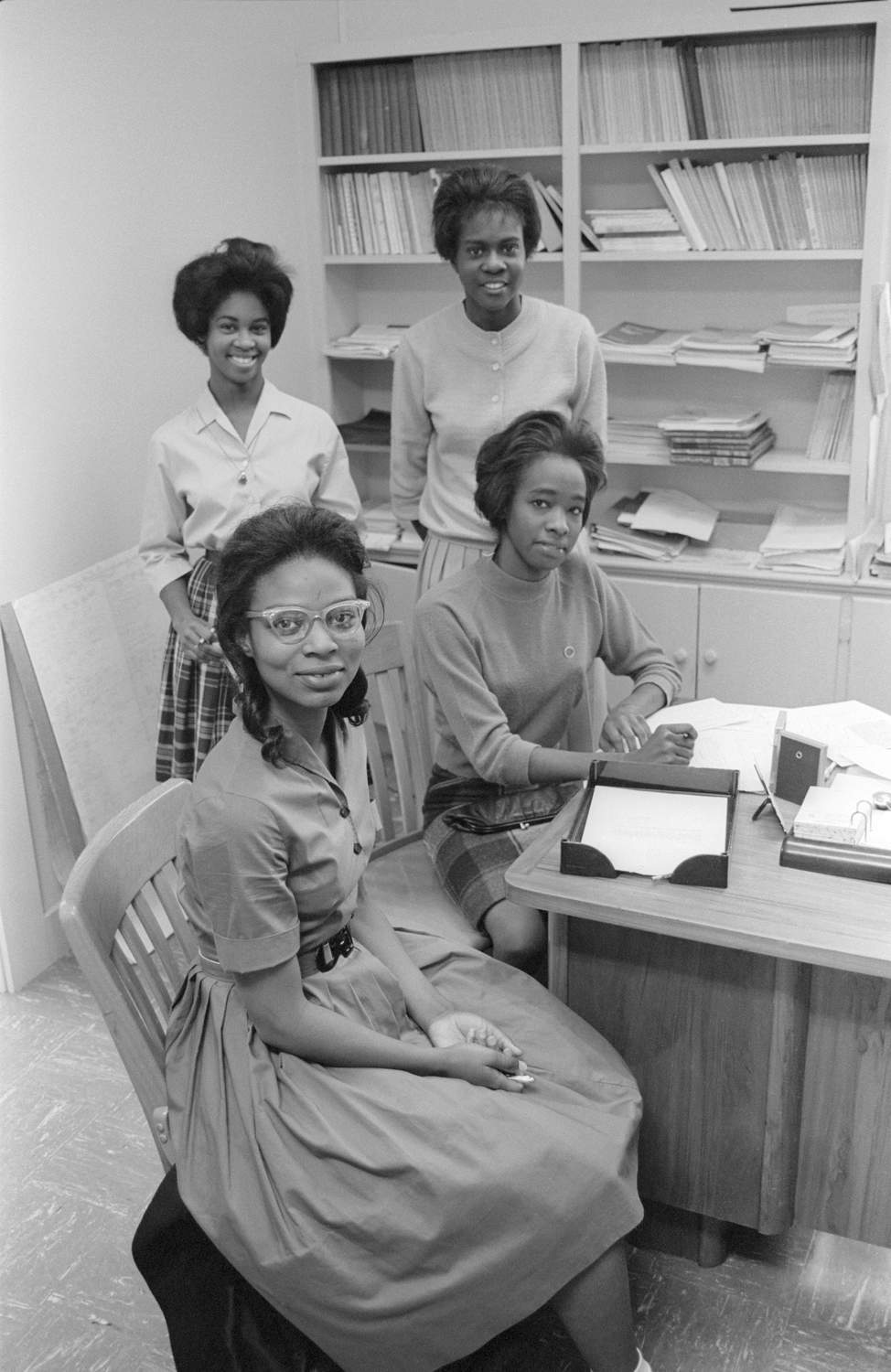
“There were five intelligent Black beautiful women that showed them what we could do, and we did it with pride,” Jackson Franks said.
In the absence of Black student organizations on campus, the women leaned on one another for camaraderie, often eating lunch together. They said they also relied on their families, communities, and churches for support and motivation.
“We entertained ourselves because there were no sororities that we could join and nothing we could do on campus,” Odoms Powell said. “Church was the main thing for me. My mother did a lot of work in the church, and to this day I’m still doing the same things that she did at the church. We were satisfied just being in school and getting an education.”
This past fall, 4,147 Black students enrolled in Texas State, representing 11 percent of the student body, according to the Office of Institutional Research. Parker noted that in the 60 years since the First Five came to Texas State, the university has produced a long list of accomplished Black graduates. They include Charles Austin, who won gold in high jump in the 1996 Olympics; and Herman Chinery-Hesse, a groundbreaking tech entrepreneur in Africa. The university has also been home to outstanding Black administrators, including Dr. Joanne Smith, who retired from her position as vice president of student affairs in 2020.
The First Five said they are proud of their trailblazing legacies. They also emphasized resiliency, urging students to never give up and to conquer any obstacle that threatens their educational goals.
“Your worst day is only 24 hours long, and then you can start over with a brand-new day,” Dana Jean Smith said. “Learning to me was always an adventure; every day was an adventure for me.”
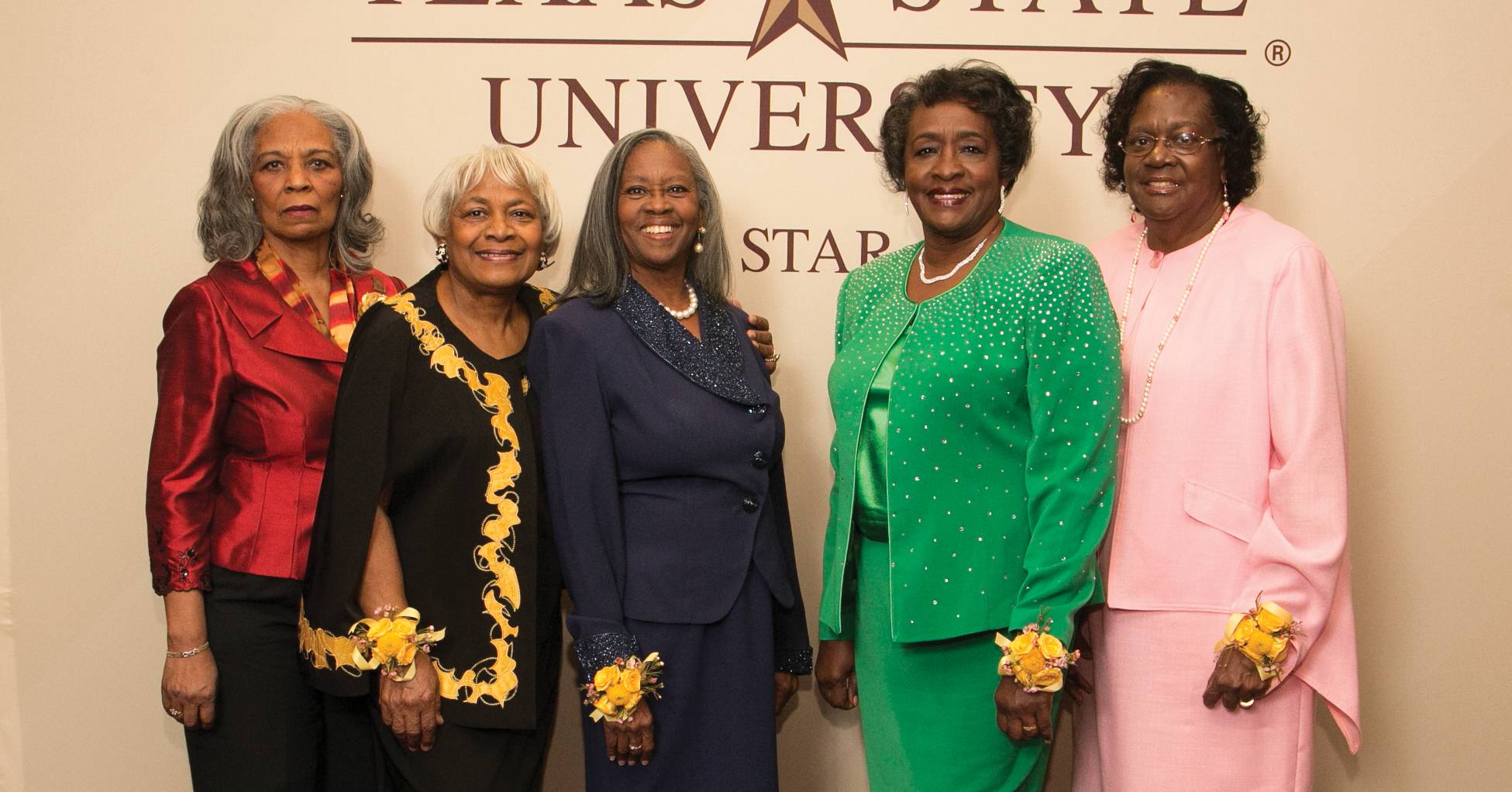
Share this article
For more information, contact University Communications:Jayme Blaschke, 512-245-2555 Sandy Pantlik, 512-245-2922 |
